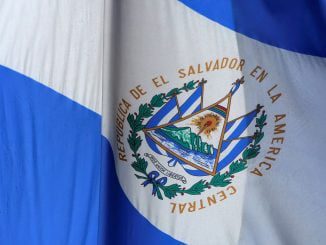SAN SALVADOR, El Salvador — If El Salvador’s President Nayib Bukele and the country’s congress can’t reach an agreement in the next two weeks on how to regulate the country’s economic reopening amid the pandemic, it will fall to individual businesses and their customers.
On Sunday, Bukele said he will follow the Supreme Court’s latest ruling that found his gradual economic activation plan was unconstitutional. In a decision that the court suspended until Aug. 23, the justices said that the president did not have the legal authority to limit the movement and activities of people and their businesses.
If the Legislative Assembly doesn’t pass a law acceptable to Bukele about how to manage the reactivation of the economy, “everything that happens going forward would have to be a question of self-regulation by the businesses and the people,” Eduardo Escobar, a lawyer and director of the Citizen Action Association, said Monday.
El Salvador’s government has been locked in a stalemate for weeks as the executive and legislative branches appear unable to work together to confront the pandemic, and the court refuses to let Bukele go it alone.
Early in the pandemic, Bukele imposed the strictest measures in Latin America. The borders were closed, people were ordered to stay home and those caught outside were held in containment centers. But the courts repeatedly ruled that the measures were unconstitutional.
The government initiated its economic reopening June 16 but has postponed the second phase twice after infections have risen. Since June 16, confirmed infections are up about 400%.
The government has confirmed nearly 21,000 infections and 563 deaths. On Sunday, the country recorded its highest daily infection total with 445.
Bukele spoke in characteristically blunt terms late Sunday, but it was a step back from his confrontational approach earlier in the pandemic when he ignored court decisions and raised international concerns.
“This government will abide by this decision, even though it is unjust and goes against the lives of Salvadorans,” he said. “History will judge them. We are not going to create a constitutional crisis.”
Bukele said the court and congress have left him without weapons to confront the pandemic. “We can’t make anyone do anything, not even make someone wear a mask,” he said.
Instead, the president said his government would continue to strengthen hospitals and urge the public to follow health protocols.
Escobar of the Citizen Action Association said Bukele must try to reach some consensus with lawmakers, whether it be on a new quarantine or an orderly reactivation of the economy.
“The government has finally understood that it can’t continue with this single vision that only the right to life and health matter and all of the other rights are left aside,” he said.


